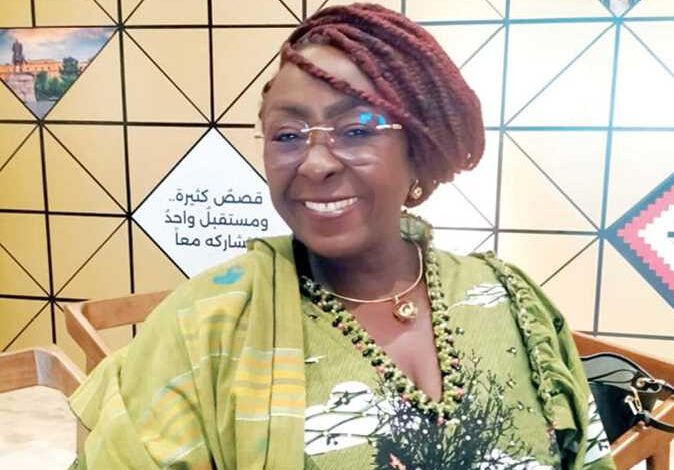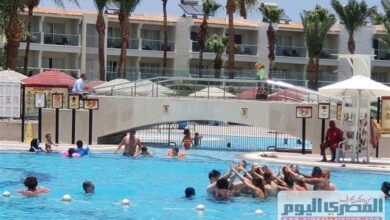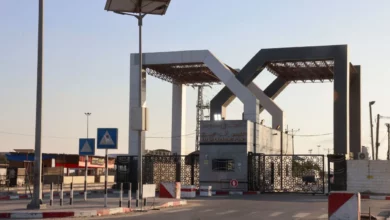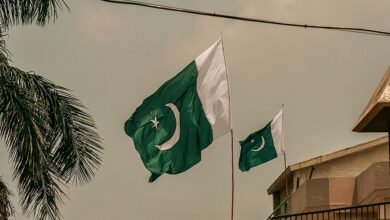
The Minister of Tourism and Culture in the Republic of Ghana, Abla Gomashie, hailed the strong relations binding Egypt and Ghana and the powerful friendship that connected Presidents Gamal Abdel Nasser and Kwame Nkrumah.
She noted that President Nkrumah even married an Egyptian woman and had three children with her, stating: “This is reason enough for Egyptians to visit Ghana.”
During an interview with Al-Masry Al-Youm on the sidelines of the UN Tourism General Assembly meetings in the Saudi capital of Riyadh, Abla Gomashie explained that 1.3 million tourists visited Ghana last year.
She also highlighted that her country is a center for the Pan-African movement, as Africans around the world regard it as the origin of the African people.
■ First, we would like to know about the nature of tourism in Ghana?
First, thank you for this opportunity to speak with you.
In Ghana, we rely on culture and heritage tourism. I am sure that when people talk about tourism in Egypt, everyone talks about the Pyramids.
Similarly, when people talk about tourism in our country, we talk about history and the system of traditional chieftaincies. It is also a center for the Pan-African movement. Moreover, the legacy of colonialism also offers us tourist sites, and of course, we have ecotourism.
We promote all of this, but our true source of strength always lies in culture and creativity.
■ How many tourists visit your country annually?
In 2024, the number of arrivals was about 1.3 million visitors.
According to the ranking of countries by visitor count to Ghana, the United States comes first, followed by Nigeria, then the United Kingdom. We hope that Egypt will become the fourth after this conversation with Al-Masry Al-Youm newspaper!
The reason is simple: everyone knows that the relations between Egypt and Ghana are historic and distinguished in all fields. I recall the strong friendship that connected President Kwame Nkrumah and the late leader Gamal Abdel Nasser.
Furthermore, Nkrumah married an Egyptian woman and had three children with her, and I believe all of this is sufficient reason for you, as Egyptians, to visit our country.
You should be interested in seeing what your ‘in-laws’ are doing and how we manage our affairs in this part of the world. We are also interested in seeing what you are doing in your country, Egypt.
Just a week ago, I had the honor of accompanying the President of the Republic of Ghana, John Dramani Mahama, during the opening ceremony of the Grand Egyptian Museum (GEM).
It was an awe-inspiring sight, and I hope this interest is reciprocated.
■ How did you view the opening of the GEM?
I believe the project to establish this museum was well-studied, and the result was clear to everyone; it is truly a significant project.
The opening was revealing, and there are many lessons to be learned from displaying the state’s archaeological possessions to its citizens and to the world—this is important.
It was a wonderful example for me; I learned a lot that can be applied to my country.
Furthermore, the cooperation between Egypt and Japan through the JICA agency and other companies gave off an impression of strength. This shows that if you cooperate with the right partners, you can attract investments to your country. According to my information, there is a Board of Trustees managing the museum that includes Japanese and other investors in the project.
This provides accountability and demonstrates a good example of collaboration between the private sector and the government.
The story related to the Khufu Ship in the museum—the ship that also has its own dedicated building—is amazing.
I noted that you should have named it ‘Noah’s Ark.’ Do you know what Noah’s Ark is? In Christianity, we learn that when the floods came, God put the animals and people in a boat, so perhaps that huge boat is Noah’s Ark! Who knows? I believe all these are lessons the world, especially Ghana, can benefit from.
■ When speaking about the GEM and its ancient treasures, this raises the question about stolen African heritage and artifacts. How can Africa recover its stolen treasures?
In 2017, I became a member of the committee established by the Economic Community of West African States to push for the recovery of these stolen treasures. As we speak today, our President, John Dramani Mahama, is the ambassador for reclaiming African archaeological and historical artifacts, and Ghana is leading this movement to return our properties and treasures from around the world.
Some countries have taken the initiative on their own and encouraged us to begin negotiations with them to return our artifacts.
However, other countries—as you know—have self-imposed laws that prevent them from returning what rightfully belongs to us, even though they know these items are not theirs.
They have put laws in place that impede the return of our treasures to us.
Therefore, we face two scenarios: countries ready to negotiate and return the items, and others that have enacted laws hindering the repatriation, despite acknowledging that the artifacts belong to us.
We are also working within this framework with UNESCO regarding the recovery of our archaeological properties and treasures.
At the organization’s last meeting, the African Union held a side event with the participation of all African Ministers of Culture to ensure a unified position and struggle toward this goal.
It is an ongoing journey. It may not be easy, but it is possible.
■ What incentives does Ghana offer to investors in the tourism sector, especially Egyptians?
Currently, the invitation is extended for you to come.
You know these matters require bilateral agreements between governments, and I believe every country has a special and distinguished relationship with the other. Currently, we are looking for investors in infrastructure, and the government owns dispute-free land that we can offer to these investors.
We will provide incentives commensurate with what these investors offer.
■ There is a stereotype of Africa as solely a safari destination. How can this perception be changed or corrected to reflect the diversity of tourism on the continent?
Before talking about the diversity of tourism, allow me to say that the West Africa region currently lacks a fully integrated global tourism school with all the necessary facilities, from operational backend to customer-facing front end.
This is an investment area that Egypt can benefit from, and Ghana is ready to be the center for this project.
We also have an opportunity for investment in hotels and building facilities with capacities that could reach 5,000 rooms.
We will facilitate these kinds of projects, and there are already examples of existing hotels like Kempinski and Mövenpick, which you can use as models. We invite Egypt to participate in this drive.
As for Africa, unfortunately, it is often viewed as if it were a single country, which it is not. There are landlocked parts of the continent, and therefore they cannot offer the blue economy that we have. We have part of the sea -the Atlantic Ocean – lakes, and rivers; thus, we offer beach and resort tourism and cruise ship travel.
We have already begun receiving cruise ships.
For countries that have safaris, that is their strength. Our strength, however, lies in being the center for the Pan-African movement; citizens of African descent around the world view Ghana as the heart of the African race.
Yes, there are safaris in Africa, but they aren’t everything.
I tell every tourist: if you are looking for a safe, friendly, and warm country to welcome you, your choice is Ghana.
Ghana is the closest country to the center of the world, where the Equator meets the Greenwich Meridian. Go search on Google to verify that yourself; don’t just take my word for it, look it up!
That is what we offer, in addition to being a friendly people, and our food is the best in the world; you just have to come and taste it.




